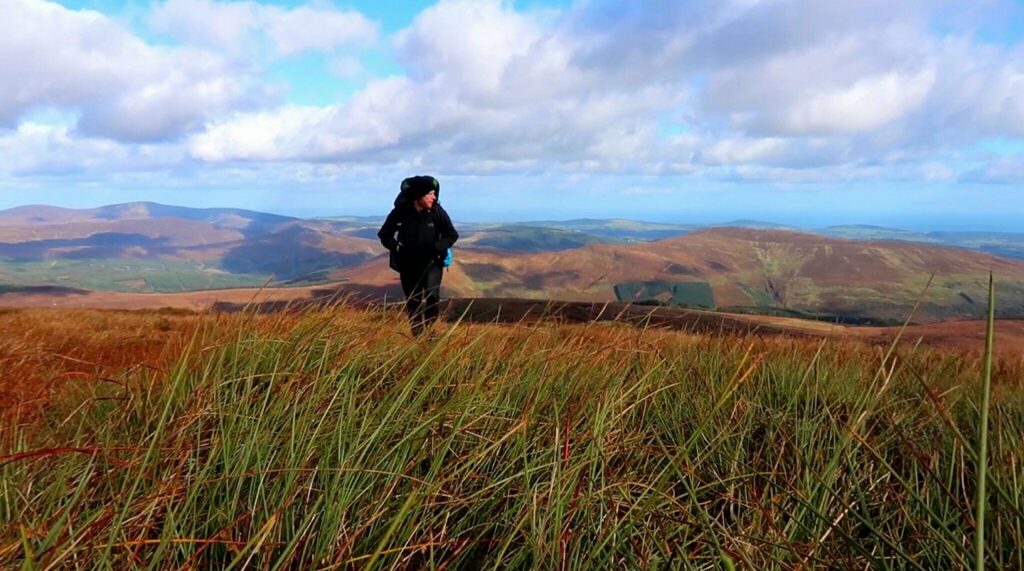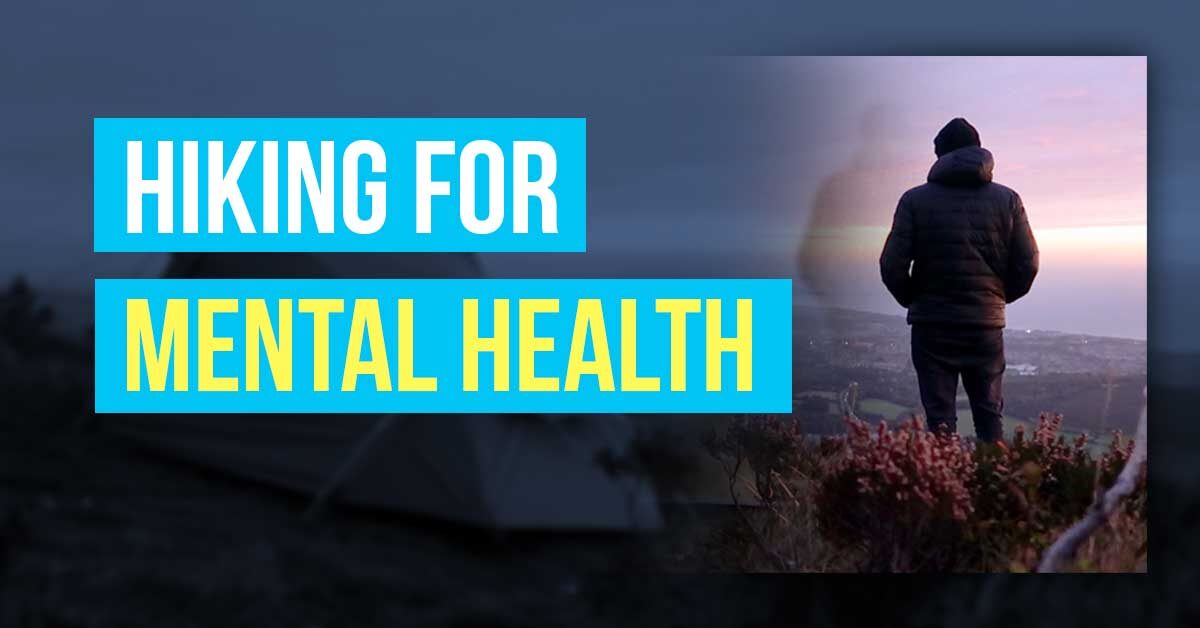I feel like hiking doesn’t get the respect it deserves when it comes to both physical and mental health. That is, running is often the poster boy for keeping active but I personally believe that hiking is more accessible or achievable and yet still delivers all the same benefits. I also say this because I’ve gotten just as fit and healthy through hiking as any other form of exercise.
And it’s not just my imagination that supports this belief…
Studies show that just thirty minutes of hiking every day can have a significant impact on both physical and mental health. For instance, hiking can strengthen bones and muscles, while increasing cardiovascular fitness. Hiking is also said to reduce the risk of heart disease, osteoporosis and certain cancers. I often need Google to remember this detail but you get the idea – hiking is scientifically proven to better our physical health.
But you know what I most appreciate about hiking?
I most appreciate the way it makes me feel.

How I First Realized the Positive Effect of Hiking on Mental Health
I travelled to Newfoundland (Canada) back in 2016 to take my first long-distance hike on the East Coast Trail. It was an incredibly painful trip. Aside from having no fitness or hiking experience, I took all the wrong gear and ended up with a 25kg backpack!! This meant that every step was a slog and my shoulders, in particular, were deeply bruised and cut. Due to so much discomfort and pain, I also decided to cancel my plan to hike the Pacific Crest Trail a year later.
Now, in case you might be asking yourself, here are just a few of my mistakes:
– I didn’t take any hiking poles which are necessary for hiking with a heavy pack.
– I packed two pairs of footwear and wore massive boots that were not suitable for hiking.
– My backpack was not designed for hiking.
– My tent was cheap but far too big and heavy.
– I packed too much gear and luxury items.
– I carried too much food and at times, too much water.
– I pushed myself too much and hiked too many kilometres every day.
Just a couple of weeks after the trip, I began reminiscing about my time on the East Coast Trail. There were still some memorable experiences such as cooking on the campfire, sleeping under the stars and waking up surrounded by nature. There was also a feeling of purpose throughout the adventure and a sense of satisfaction after hiking more than 350km. And most importantly, I felt happy and healthy throughout the hike and fully recharged in spite of my back, feet and shoulder pains. That’s right, I was in absolute agony and forever chastising myself for bringing too much gear and yet feeling utterly content at the same time.
In fact, I even thought: that was almost the best trip of my life!
It’s true, my mental health was remarkably good for this entire trip.
When Hiking Really Began to Impact My Mental Health
I decided to take another look at the Pacific Crest Trail and do some proper research in terms of gear, logistics and advice from previous hikers. And after saving up enough money, I took aim at my shopping list for backpacking gear and travelled to the start of the trail in America.
It was a gruelling 5-month hike but also one of the happiest times in my life. I was without the immense weight from my previous trip and experiencing all those things that made me feel content. Even when the bad days came, hiking always seemed to make any unwanted feelings disappear. I just focused on the trail and when I hiked for long enough, those feelings were little more than a white, puffy cloud in the sky – that would inevitably float away.
Hiking made me feel so good about myself (and the world around me) that I saw no reason to stop taking these hiking trips. For this reason, I went on to walk the Camino de Santiago before walking all the way around Ireland. When I went back to working nine to five, I continued to hike in the evenings and found all those same feelings in smaller doses. I knew it wasn’t a coincidence that my mental health improved any time I went hiking, for studies had already proven that hiking is beneficial for both mental and physical health.
But I’d also like to tell you about how I use hiking to improve my mental health every day.

How Hiking Began Improving the Quality of My Everyday Life
I used to experience a great sense of dread on Sunday evenings. Many people refer to this phenomenon as “the fear” which usually happens in anticipation of work or the week ahead.
While I’ve made certain lifestyle changes to eradicate this fear, I continued to experience some very extreme anxiety in many different scenarios. But what’s this got to do with hiking?
Let me explain real quick.
The limbic side of the brain essentially controls our emotions or anxiety and likes to make decisions quick and fast. But it’s possible to combat this surge of anxiety with breathing exercises and yes, you guessed it – hiking! It’s true, physical activity forces this side of the brain to switch off and engage in different parts of the brain that can ignite positive thoughts.
Now, that’s not to say I go hiking every day to deal with my problems but rather to explain how hiking significantly improves my mental health in everyday life. In fact, it’s very rare that I go one day without taking a short hike to a nearby beach or hill tip or even a walk in the park.
Before I leave you with some final words, I thought that maybe someone reading this article will be entirely new to hiking. If that’s you, here are some tips for getting started:
New to Hiking in Ireland? Here Are Some Tips for Getting Started
Focus on Making a Start – As part of a challenge called “Walk Every Day for One Month”, I help hundreds of participants form a healthy habit in the month of November. Many of these individuals had no walking “experience” so I began by encouraging them to take short achievable walks in the beginning. Some of them began by walking to the shops instead of driving, while others started taking the stairs to their apartment rather than the lift. By the end of the month, the vast majority were up the mountains and taking hiking trips that seemed impossible to them at the start of the challenge.
Think Outside the Box – I suggested to a friend of mine that he should start walking to work every day. He enjoyed his job but the daily commute left him with a serious sense of dread in the evenings. This morning routine is now something he looks forward to and one of his work colleagues also joins him from time to time.
Remember that Hiking is not a Competition – Hiking for thirty minutes is enough to improve your health. It’s not a competition so there’s no need to compare your progress or distance or route to that of anyone else.
Don’t be Put off by the term “Hiking” – Hiking is no different than walking and requires very little gear to get started. You can also go hiking at any time of day and the time or distance is entirely up to you. You don’t even need to worry about “keeping up” because there’s no set pace and unlike running, it’s not really a rigorous exercise.
Invest in a Decent Pair of Hiking Shoes – Most of my injuries in the past were due to hiking long distances without a set of hiking poles. But the rest of my injuries were down to wearing the wrong footwear on my hikes. You don’t need to spend a fortune but the appropriate heel and arch support is essential which means you should at least invest in a reliable pair of hiking shoes that will save you from blisters and injuries on the trail.
You Can Still Achieve the Same Benefits – If you do want to lose weight or build strength, you can always hike faster. Walking fast burns more kilojoules per hour and this will still feel less rigorous than running etc.
Afraid or Nervous about Hiking Alone? – Hiking is a social activity. If you don’t want to hike alone, there are lots of clubs and Facebook groups in which you can find someone to go with you. I know many people who now consider their hiking group as their “tribe” or “trail family”.

Final thoughts
The truth is, unlike most types of exercise, hiking doesn’t require any expensive equipment or special training, and the actual process is free. It’s the positive effect of hiking that deserves more respect and this is especially true when it comes to mental health. In fact, the Irish Times wrote an article last year about my story which was entitled “Walking Back to Happiness” and I couldn’t have said it any better – Hiking just makes me feel happy.

